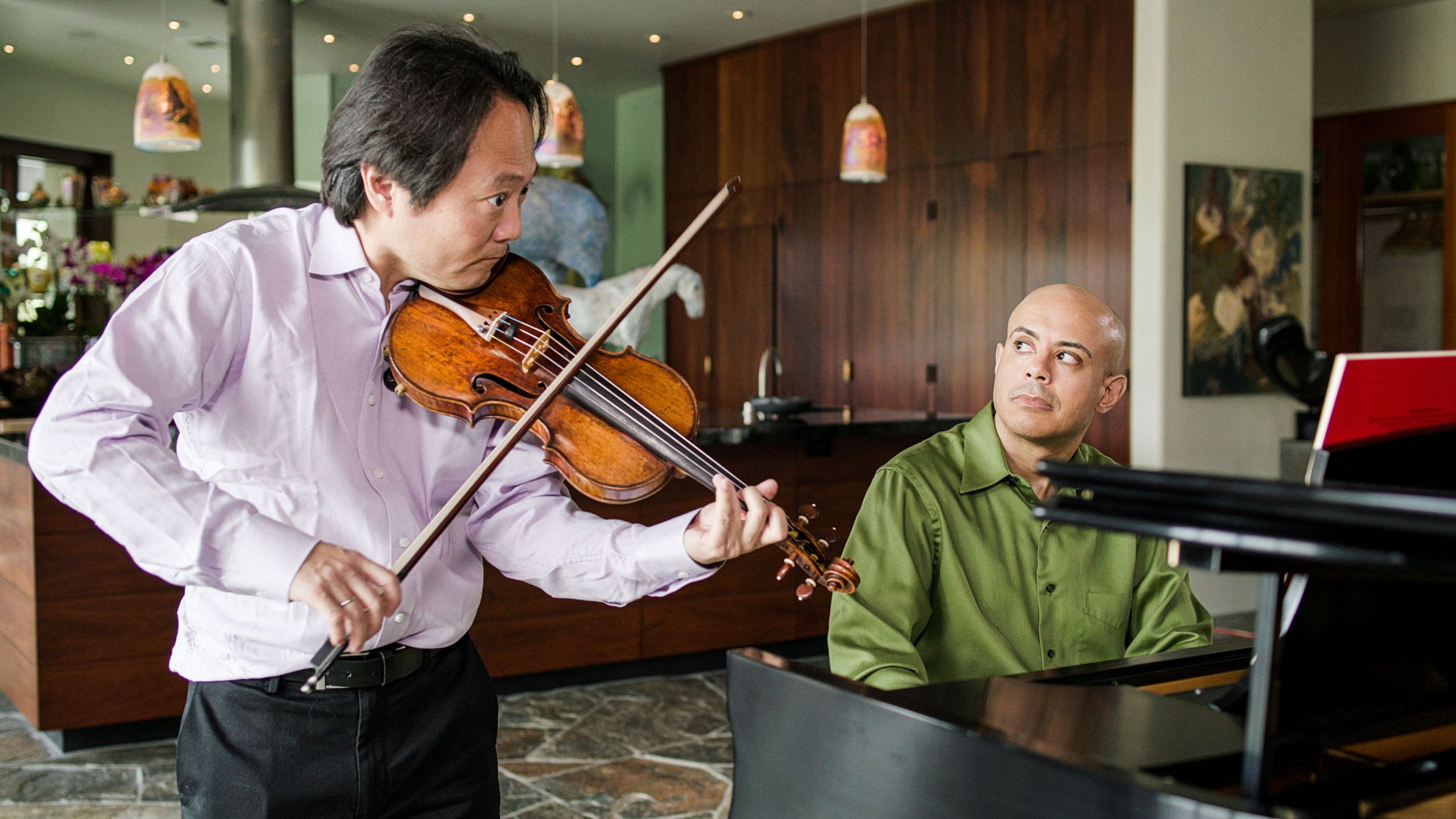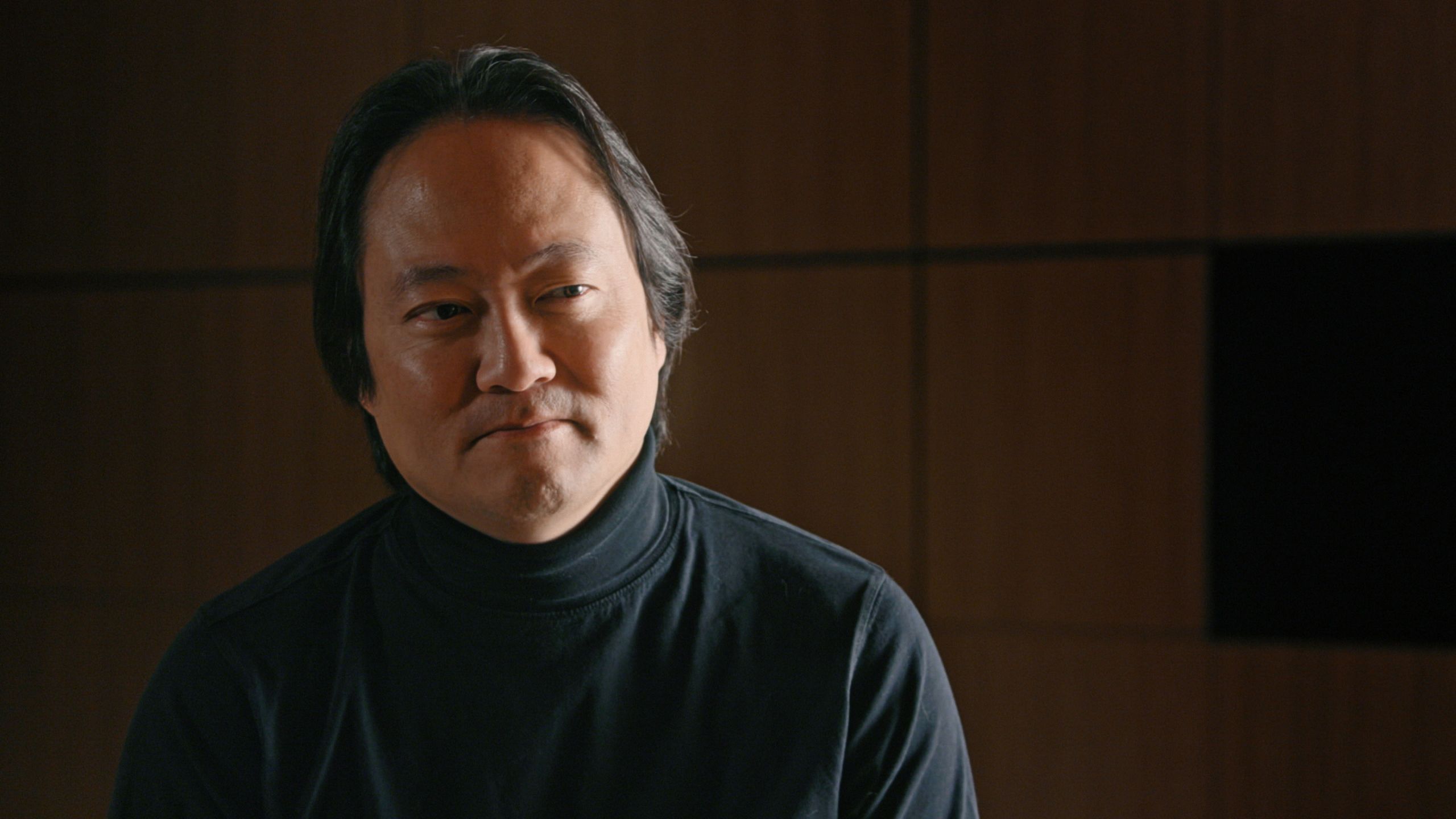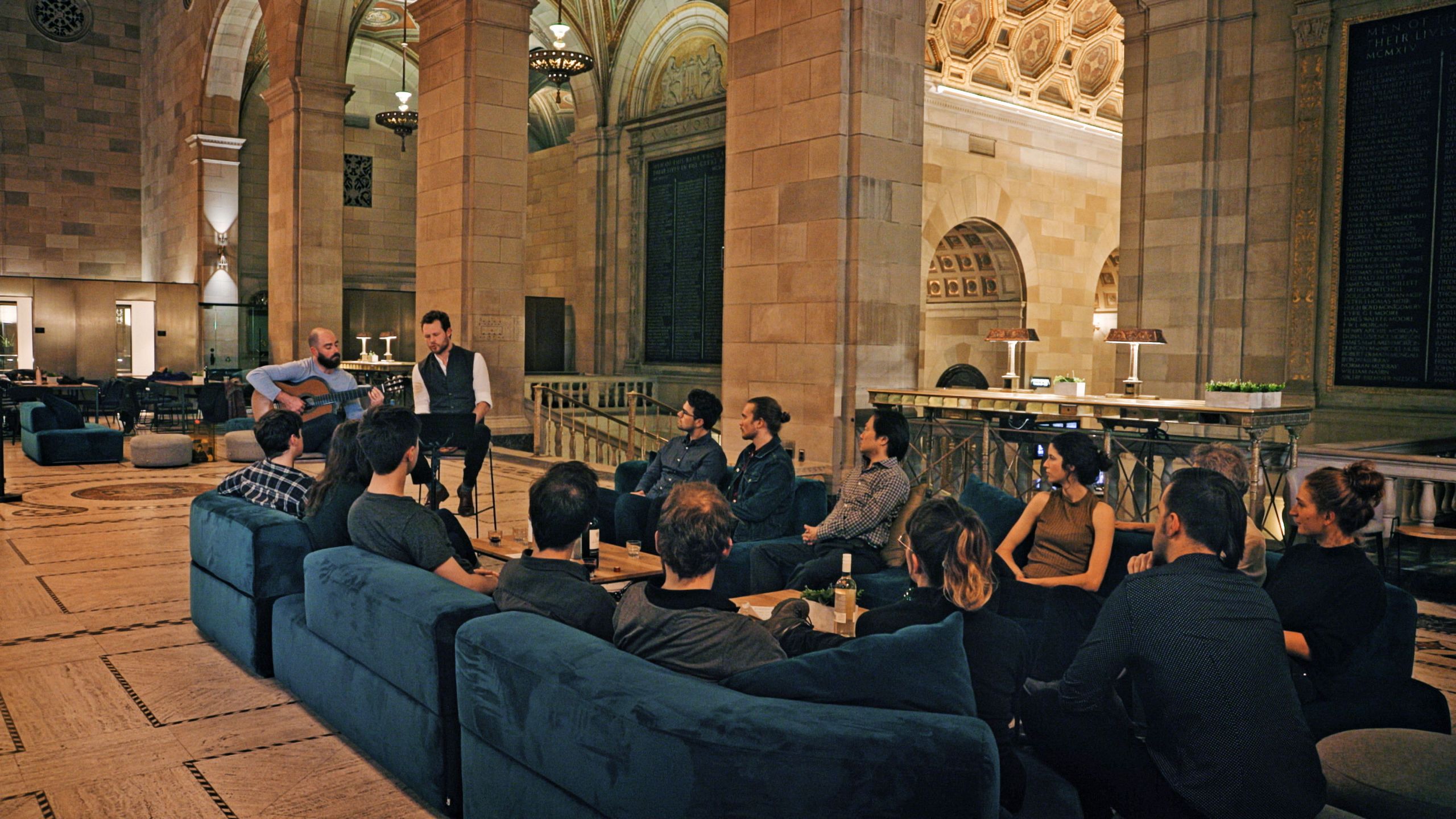By Scott Yoo

photo credit: Arcos Film + Music
With the world coming to a standstill due to the pandemic, how does has the musical routine of Mexico City Philharmonic Chief Conductor, Music Conductor of Festival Mosaic and Now Hear This host Scott Yoo changed? Read on and learn more about Now Hear This here.
Question: How often do you practice?
Scott Yoo: So, my musical life is divided into two parts: Conducting and violin-playing.
Conducting is time-consuming because it demands skill in many different areas. During normal times, I’m working on orchestral music for at least half the day every day. For example, I will either be studying the score, learning the clarinet part, marking a bowing in the second violin part, or adjusting the dynamics in the horn part. Learning choral works is even harder because I force myself to learn how to sing each part— and I’m a terrible singer!
Because I’m often spending upwards of 10 hours a day on orchestral music, I’ve learned to be more efficient when practicing the violin. When I was younger, my regimen was 9 half-hour sessions of practicing a day, with at least a 15-minute break in between. These days, if I’m practicing the violin, I’ll identify the 5, 10, or 20 sections that give me the most difficulty, and then try to drill each section at least 200 times before the concert. It sounds like a lot, but the sections are pretty short, and it might be achievable in as little as 15 minutes a day if I start the process early enough. It doesn’t mean that I play flawlessly– that’s certainly never happened— but it does ensure that the quality of my violin-playing is more uniform, whether the music gets harder or easier.
One of the few “good” things about this pandemic is that it gave me an opportunity to get ahead in my work. With all of my concerts being cancelled since March through at least 2021, I’ve had the time to winnow my “inbox”— I’m now studying for concerts that are a year and a half away. In a few months, I will hopefully have metaphorically cleared my desk, a first for me since graduating high school.

Scott Yoo
photo credit: Arcos Film + Music
Q: Have you played for any virtual performances? What is that like?
SY: Yes, and it was a strange experience! Three months ago, I performed virtually at the Colorado College Summer Music Festival, where I conduct every June. There wasn’t an orchestra, but we performed chamber music, in our normal hall, socially distanced, with masks on, and no audience. The two concerts were live-streamed on Facebook and on the local NPR affiliate. I felt a bit disconnected from the concerts, even though I was making music with real people onstage. There was no applause before of after the performances. It was like watching yourself perform, as an observer rather than a participant— passive, rather than active. I can’t wait for real concerts to start one day soon!

photo credit: Arcos Film + Music
Q: How have you been staying in touch with the musical community during this time?
SY: The pandemic has necessitated even more communication than normal. At the beginning of April, I called each musician at Festival Mozaic to tell them that the 2020 festival would be postponed. It was a sad process of individually mourning the loss of the festival over and over with each musician. But it was also a chance to reconnect with people I see only once a year, and celebrate engagements, weddings, birth announcements, and so forth. The Mexico City Philharmonic and I connect by a Zoom meeting every week, and those Hollywood Squares-like boxes are a nice way to feel a sense of community with those musicians with whom I share a plurality of my time during the season.
Q: When things hopefully settle down, is there any concert/festival you’re looking forward to most to seeing?
SY: I’m pulling extra hard for the small concert presenters— especially in underserved areas— who bring live performances to those who would have very little opportunity to hear live music otherwise. I hope that the smaller venues will be able to weather the storm— America needs music, now more than ever.
